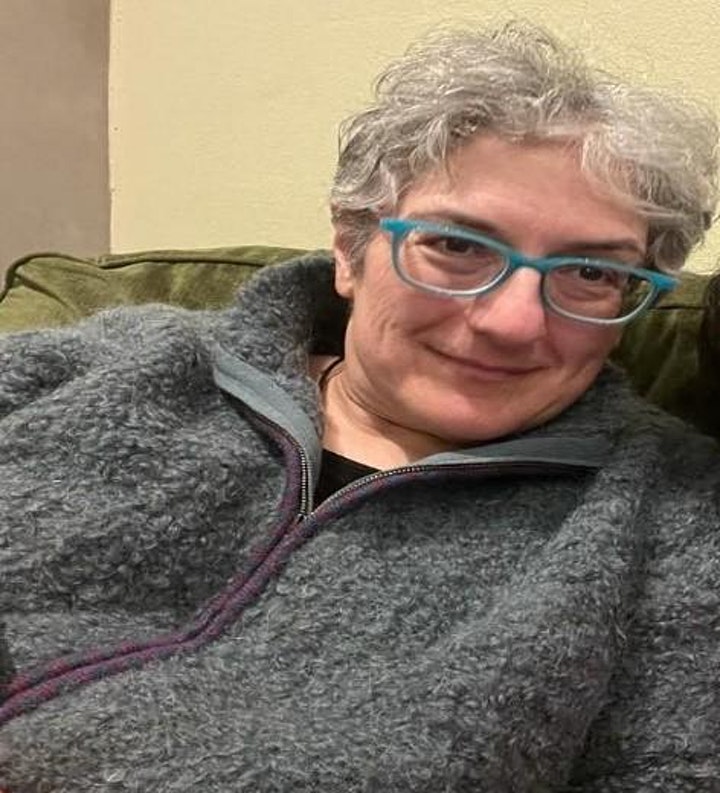Critical Voices Network Ireland (CVNI) is pleased to announce a seminar/workshop, organised in partnership with the Institute for Social Science in the 21st Century (ISS21), University College Cork (UCC), Ireland, the Survivor Researcher Network (SRN), UK, and Asylum Magazine, UK. CVNI are pleased to be working again with the Onlinevents team, who will provide the online platform and support.
This seminar/workshop is the second in four seminars/workshops on critical mental health matters to be presented over the next few months with further details to follow as soon as these are ready to share.
Seminar/Workshop 2:
‘Can you help me get out?’: Ethical, political and methodological struggles in doing survivor research in mental health, a seminar by Konstantina (Dina) Poursanidou, PhD.
In this seminar, drawing on my personal experiences as a service user researcher in English Universities, I will seek to throw light on the unremitting identity and other (ethical, political and methodological) struggles implicated in the task of constructing and negotiating my double identity as an academic researcher and a mental health service user; a task involving immense complexities, challenges, paradoxes, contradictions and ambivalence. In discussion with the audience, my aim will be to interrogate crucial concerns that have dominated my conversations with other service user/survivor researchers in academia over the years through some hard questions such as:
a) How to manage the significant emotional labour and the acutely complex ethical and political dilemmas involved in using our lived experience of distress and mental health service use as ‘an instrument of knowing’ and understanding in mental health research? How to care for ourselves and our mental health in the process of carrying out research work that necessitates maintaining continuous contact with experiences of madness and with the discomfort and terror they can generate?
b) How to negotiate the demand to incessantly disclose details of our histories of mental ill health in order to be deemed ‘authentic’ survivor researchers in academia, when such disclosures are irreversible and carry significant emotional and professional costs?
c) How to survive as service user/survivor researchers in the neoliberal University, when faced with unsettling relations with non-service user researchers/academics, a ruthlessly competitive labour market, financial and psychological precarity and casualisation, lack of clear career pathways and obstacles to career progression even for the most qualified and experienced survivor researchers?
d) How to survive as service user/survivor researchers in academia when we are acutely aware that our ‘valuable lived experience of mental distress and service use’ aside, we are actually a liability when our academic worth is measured on the basis of productivity and publications in high impact factor journals?
ORGANISERS:
Critical Voices Network Ireland https://cvni.ie/
The CVNI is a coalition of people with self-experience, survivors, supporters, practitioners, academics, and campaigning and advocacy groups, all interested in a mental health system based on choice, respect, dignity, non-coercion and principles of social justice. The CVNI advocates for a shift away from the current narrow focus on individual pathology in mental health practices, towards approaches which acknowledge and validate the complexity of human distress.
Institute for Social Science in the 21st Century (ISS21) https://www.ucc.ie/en/iss21/
ISS21 is an interdisciplinary research institute for the social sciences in UCC, that seeks to build, sustain and enhance research on social, economic and cultural issues. ISS21’s Disability and Mental Health Cluster brings together UCC researchers, academics and practitioners, who set out to explore and challenge understandings and meanings of disability and mental health; to explore the potential of different methodologies/ethical issues in research with people with disabilities and emotional distress; to forge links with advocacy, community activist groups in our research/activities; and to create a space for sharing research with colleagues across different disciplines.

Asylum, The Radical Mental Health Magazine https://asylummagazine.org/
Asylum, formerly the magazine for democratic psychiatry, was established in 1986 as a forum for free debate, open to anyone interested in psychiatry and mental health politics, practice and policy. We were inspired by the democratic psychiatry movement in Italy and continue to be influenced by radical mental health movements around the world, including the psychiatric survivor and Mad liberation movements. We welcome contributions from service users, ex-users or survivors; activists, family members and frontline psychiatric or mental health workers (anonymously, if you wish). The magazine is not-for-profit and run by a collective of unpaid volunteers.

Survivor Researcher Network (SRN), a Community Interest Company (CIC) https://survivorresearcher.net/
The Survivor Researcher Network (SRN) is a UK-based user-controlled network for all mental health service users and survivors with an interest in research. The SRN was originally formed after the ‘Strategies for Living’ Mental Health Foundation project (1997-2003). It was hosted by the Mental Health Foundation until 2011, and then by the National Survivor User Network (NSUN). SRN is now an independent community interest company, Survivor Researcher Network C.I.C.
Survivor/service user-led research is carried out from the perspectives of people with experience of mental/emotional distress and mental health service use. It is different from traditional Patient and Public Involvement (PPI) in research as service users and survivors have control over the entire research process. This type of ‘user-led’ or ‘user-controlled’ research has grown and developed from the political roots of psychiatric survivor activism that has sought to challenge the psychiatric system, bio-medical ‘illness’ models and collectively develop different forms of knowledge based on lived experience of mental distress.

Seminar inquiries to Lydia Sapouna at l.*******@*cc.ie or Harry Gijbels at h.*******@*cc.ie
Course Content
Presenter

Konstantina (Dina) is an independent Service User Researcher in mental health. Her doctoral and post-doctoral research has spanned a range of fields including mental health, education, child health, youth justice and social policy/social welfare. She has worked in a number of Universities in England as a Service User Researcher and held a 3-year Postdoctoral Research Fellowship in Patient and Public Involvement and Improvement/Implementation Science at the Service User Research Enterprise in the Institute of Psychiatry, Psychology and Neuroscience, King’s College London. She is a member of Asylum, the radical mental health magazine editorial group, as well as one of the directors of the UK-based Survivor Researcher Network Community Interest Company.


